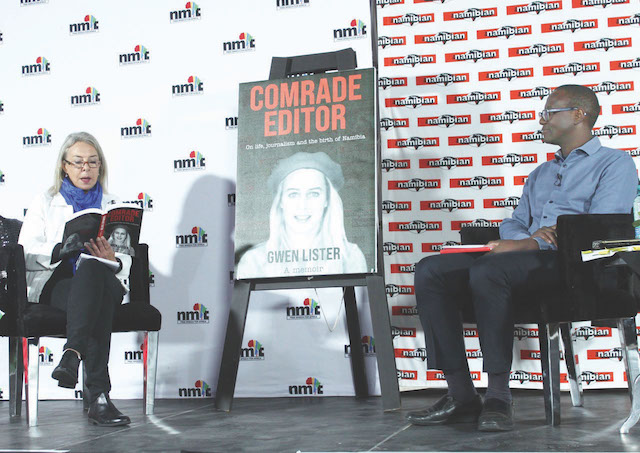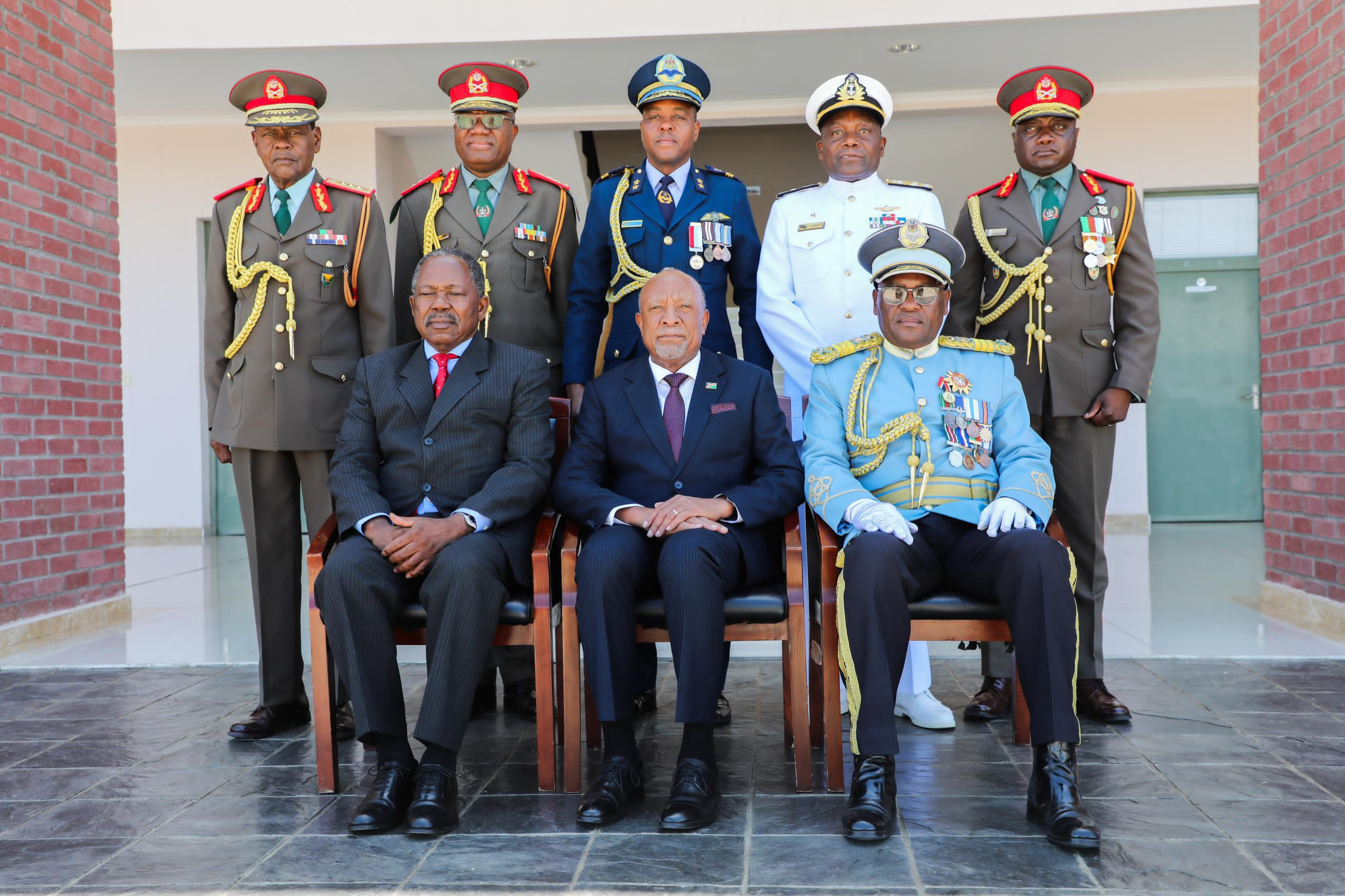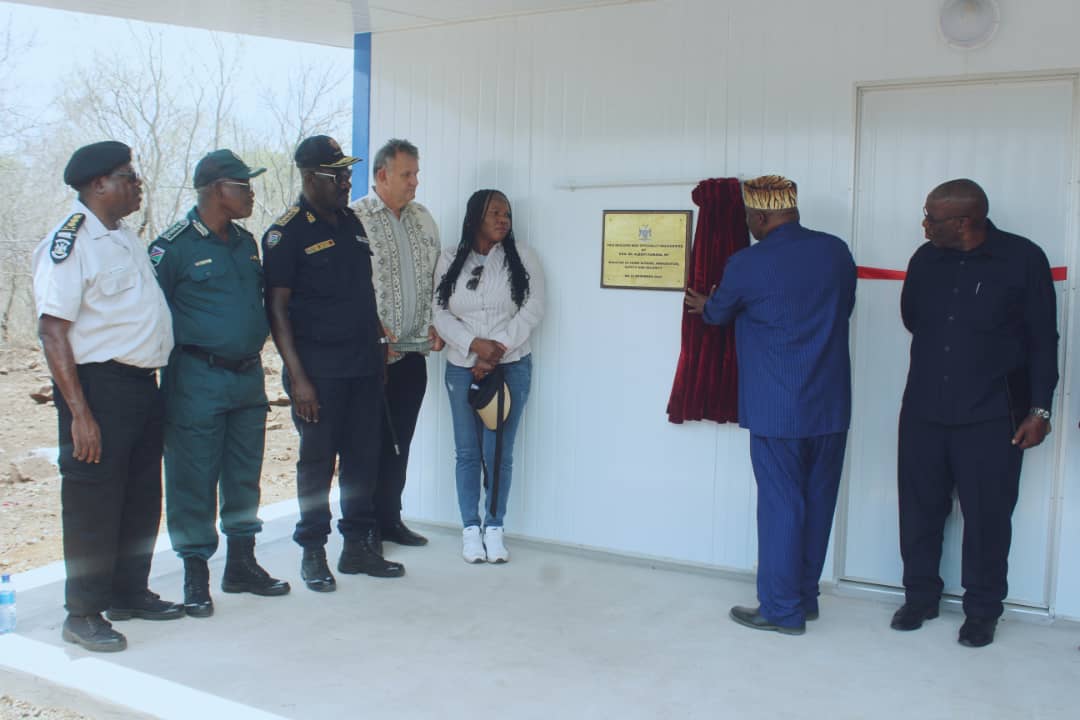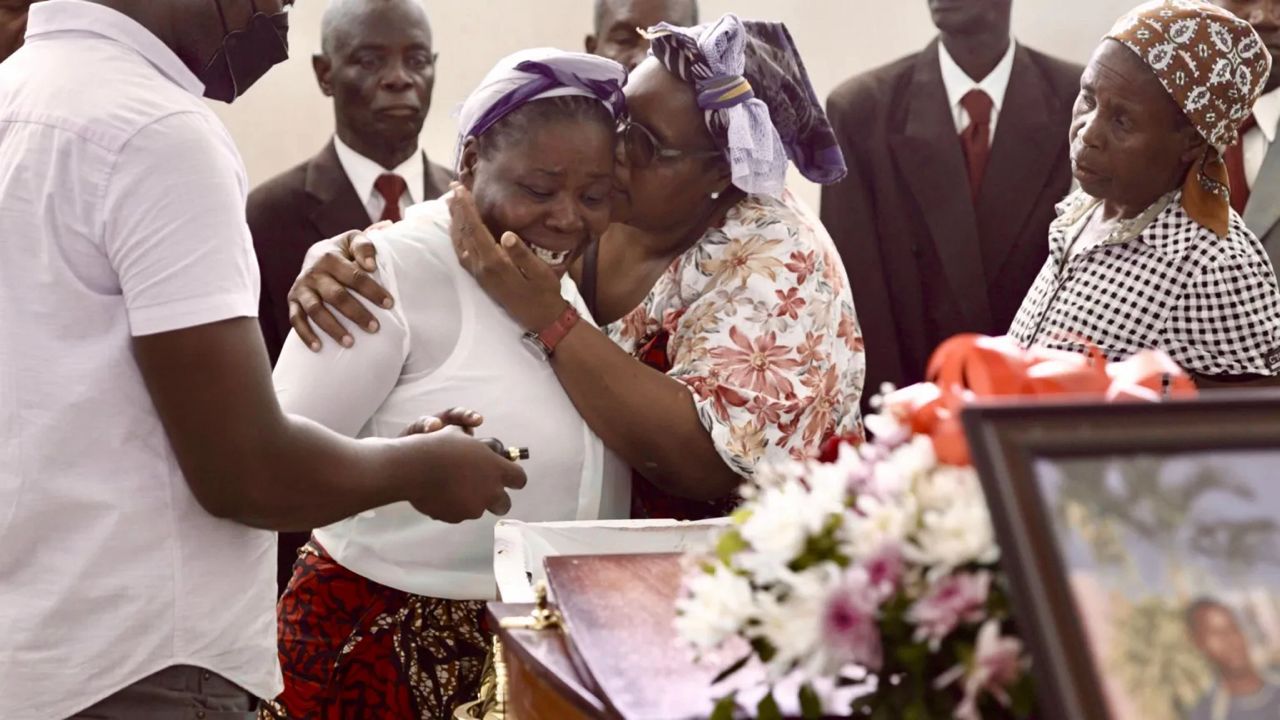BLATANT misogyny was one of the major challenges which The Namibian’s founding editor, Gwen Lister, had to overcome at the start of her career in journalism some 45 years ago, Lister recalled in a livestreamed conversation with her successor as editor, Tangeni Amupadhi, on Friday.
The conversation between Lister and Amupadhi focused on her newly published memoir, ‘Comrade Editor’, in which Lister recounts her personal story, her journalism journey and part of the history of Namibia’s birth as a nation.
Lister said the book’s title was inspired by a nickname which Chris Shipanga, a former reporter at The Namibian, gave her and still uses.
Her journalism career started in 1976 with the newspaper The Windhoek Advertiser, which was edited by Hannes Smith, widely known as ‘Smittie’.
In her memoir, Lister describes in detail the misogyny she had to endure while working with Smith, with whom she also started the weekly newspaper the Windhoek Observer in 1978.
“It’s very clear in the pages of the book how opposed he was to women. He felt they belonged either in the bed or in the kitchen, or both, but they certainly did not belong in the newsroom,” she said.
Lister said she had to prove to herself and Smith that being a political journalist was not only suited to men, but women could excel at this too.
She said she was later vindicated by Smith’s recognition of her work. “The nice thing was, and I think people will enjoy reading those chapters in the book, after everything […] Smittie admitted I had done a better job than most of his male reporters had ever done in those days,” she said.
The memoir also details the roles The Namibian, which she started in August 1985, and Lister played in advocating and attaining Namibia’s independence.
Asked whether The Namibian was affiliated with Swapo, she said the newspaper and the party had similar objectives, but The Namibian was never controlled or run by the ruling party.
“As you would have read in the book, a lot of the association with liberation movements was largely because we had the same aim and objectives, and that was to bring about self-determination for Namibia […] but as to ever being influenced by Swapo, that was never the case,” she said.
During the interview, a compilation of recorded messages from former colleagues and friends of Lister in the media was also shown.
Journalist Guy Berger said journalism has been Lister’s weapon of choice.
“A country makes its people, and some people also help to make a country. Namibia has made Gwen Lister and Gwen has helped to make Namibia,” Berger said. “She has done this in a reciprocal way, not for personal glory, but as payback for the opportunity to be alive and aware of the need to fight injustice.”
Freelance journalist David Lush, who was a staff member at The Namibian in its early days, said: “If journalism is the first version of history, then presumably a book by a journalist is the second version. So many, many congratulations and thank you, Comrade Editor, for bringing us ‘Comrade Editor’.”
The memoir is available at Book Den in Windhoek and is set to be launched during an online event with Exclusive Books today.
Stay informed with The Namibian – your source for credible journalism. Get in-depth reporting and opinions for
only N$85 a month. Invest in journalism, invest in democracy –
Subscribe Now!






